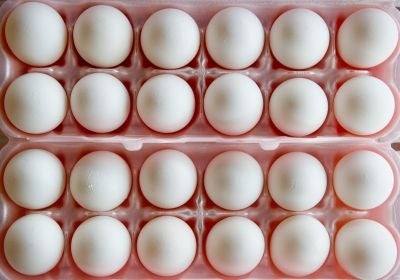Your support helps us to tell the story
From reproductive rights to climate change to Big Tech, The Independent is on the ground when the story is developing. Whether it's investigating the financials of Elon Musk's pro-Trump PAC or producing our latest documentary, 'The A Word', which shines a light on the American women fighting for reproductive rights, we know how important it is to parse out the facts from the messaging.
At such a critical moment in US history, we need reporters on the ground. Your donation allows us to keep sending journalists to speak to both sides of the story.
The Independent is trusted by Americans across the entire political spectrum. And unlike many other quality news outlets, we choose not to lock Americans out of our reporting and analysis with paywalls. We believe quality journalism should be available to everyone, paid for by those who can afford it.
Your support makes all the difference.The massive recall in US markets of more than half a billion eggs possibly tainted with salmonella shows the dangers of concentrating the egg industry in just a handful of "mega producers," US food industry critics said.
"Salmonella in eggs was not a problem in the United States until the 1980s when these huge mega producers were born," Fast Food Nation bestseller author Eric Schlosser told CNN.
More than 2,000 people have been infected with salmonella enteriditis bacteria since May, leading to a recent recall of more than half a million fresh eggs, one of the biggest in the industry's history, the US Food and Drug Administration (FDA) said.
The recalls concern two chicken egg processors - Hillandale Farms and Wright County Eggs, both in the midwestern state of Iowa - and cover several dozen brands across 22 US states, US authorities said.
The source of salmonella in egg-laying chickens could come from contaminated food or fecal matter from infected rodents invading the coops.
Nearly all egg-production in the United States (95 percent) is presently concentrated in the hands of some 200 companies, compared to around 2,500 farms in 1987, according to the United Egg Producers group.
Thirteen companies alone raise more than five million egg-laying chickens each, with five US states accounting for most of the estimated 280 million egg layers in the country: California, Iowa, Indiana, Ohio and Pennsylvania.
"There should not be any salmonella in the eggs. Until 20 years ago, there really wasn't any. It's once you've got those mega mega producers putting 150,000 birds in one building that you start to get that kind of diseases," said Schlosser.
"When you cram the birds so closely together it will spread disease from one animal to another," he added.
The salmonella outbreak reached national concern by mid-August, with millions of American wondering if they should now skip their favorite breakfast food.
It brought back the 2009 salmonella outbreak in peanut butter, another favorite US food, which infected thousands of people and killed nine.
Other salmonella recalls in recent years included pistachios, frozen spinach, and milk, feeding criticism that America's food regulation regime is under-staffed and overtaxed.
With the latest salmonella scare, the FDA has renewed its appeals for greater recall and inspection authority. The US Congress has responded by recently passing a law expanding the FDA's recall powers, which up to now were made by companies on a voluntary basis.
The egg recall, said Schlosser, "is partly a breakdown in our regulatory system, but it's also a sign of what companies are willing to do to make money."
The salmonella scare, however, has buoyed proponents of local, small-scale farming.
"Small farmers have the availability to keep their farms clean, (and) make sure there is enough room. The bigger those operations are the more you run into problems," said National Black Farmers Association president John Boyd.
vmt/fgf/jm

Join our commenting forum
Join thought-provoking conversations, follow other Independent readers and see their replies
Comments